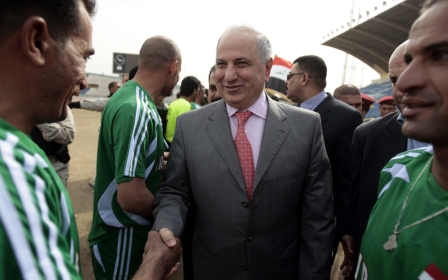Iraq vice president files court case to keep his post

Iraqi politician Osama al-Nujaifi filed a court case seeking to remain vice president, a position the prime minister sought to abolish during a reform drive, a judicial statement said on Tuesday.
It is the latest in a series of challenges to Prime Minister Haider al-Abadi's reform efforts, which have run into problems due to the endemic nature of corruption in Iraq and the fact that officials are limiting their own privileges by implementing some changes.
The vice presidential positions, which came with large salaries and security details but few responsibilities, were most recently held by Nujaifi, a former parliament speaker, and ex-premiers Nuri al-Maliki and Iyad Allawi.
Abadi sought to do away with the job as part of a reform programme aimed at curbing corruption and streamlining the government.
Nujaifi is seeking "to repeal the cabinet decision to cancel the position of vice president of the republic, and reverse (parliament's) decision to approve it," the Higher Judicial Council said in a statement.
The Supreme Court adjourned the case until 24 November, the statement said.
Nujaifi had earlier issued a statement saying he welcomed Abadi's reform efforts.
His case may be helped by the fact that the constitution mandates the existence of at least one vice president to fill in for the president if he is absent or his post becomes vacant.
It is a provision that would require an amendment to change.
In response to popular protests and calls from top Shia cleric Grand Ayatollah Ali al-Sistani, Abadi announced reforms including scrapping the deputy premier and vice president posts, streamlining the cabinet, cutting salaries for officials and slashing their huge number of guards.
Parliament approved the measures along with its own series of proposed changes, but it has since pushed back against Abadi, complaining that its legislative power must not be usurped during the reform process.
Both Nujaifi's court case and the parliamentary complaint came after popular pressure for change decreased, with weekly protests that once drew thousands now dramatically smaller, if they take place at all.
Stay informed with MEE's newsletters
Sign up to get the latest alerts, insights and analysis, starting with Turkey Unpacked
Middle East Eye delivers independent and unrivalled coverage and analysis of the Middle East, North Africa and beyond. To learn more about republishing this content and the associated fees, please fill out this form. More about MEE can be found here.




